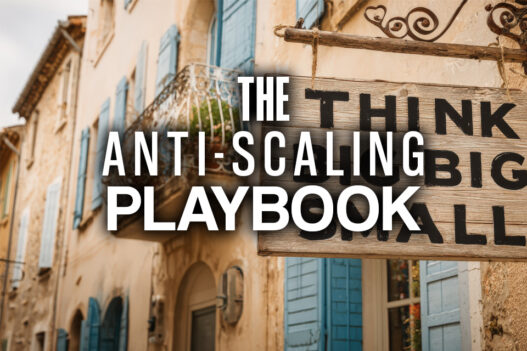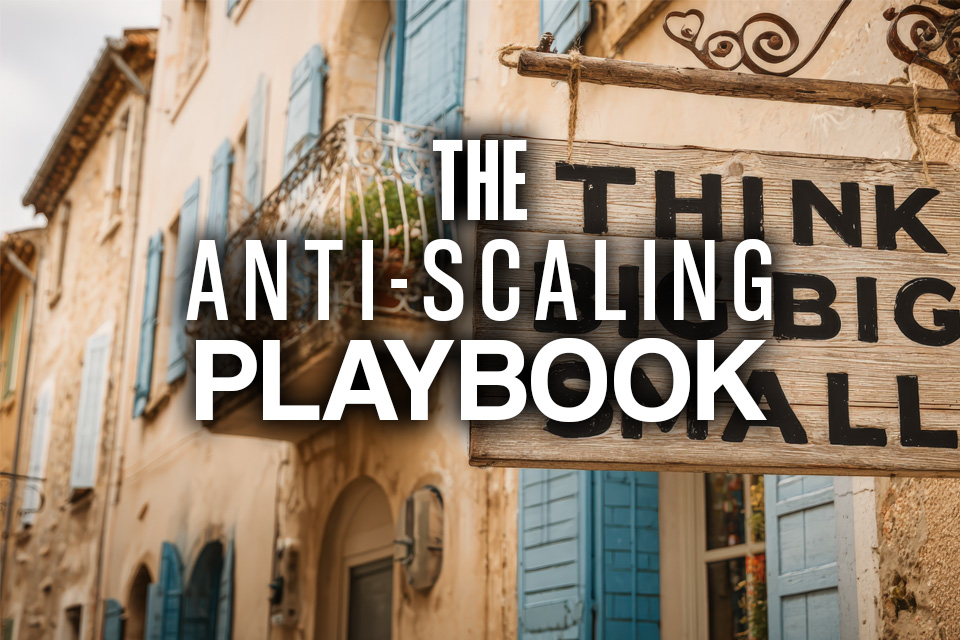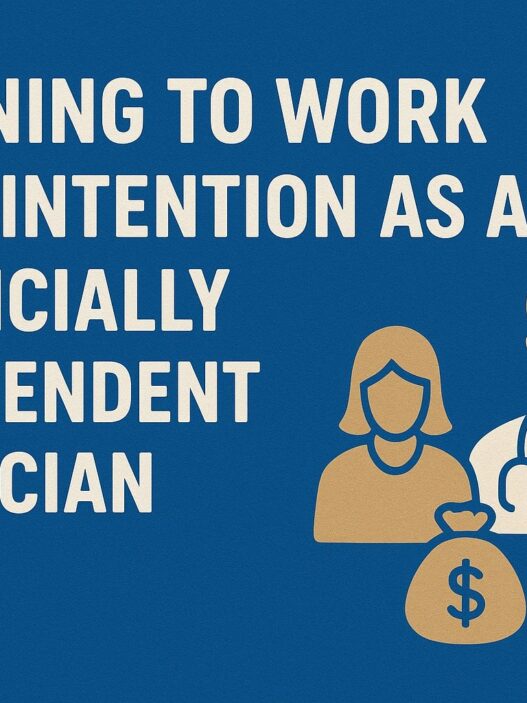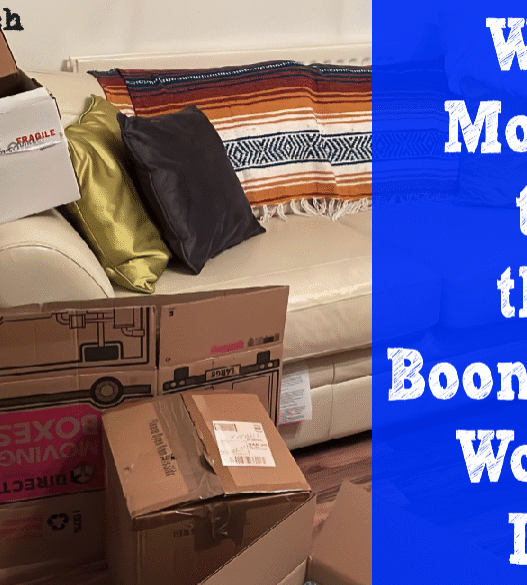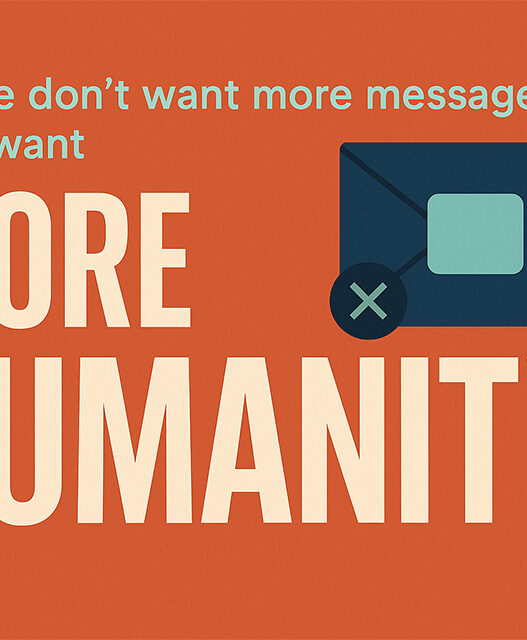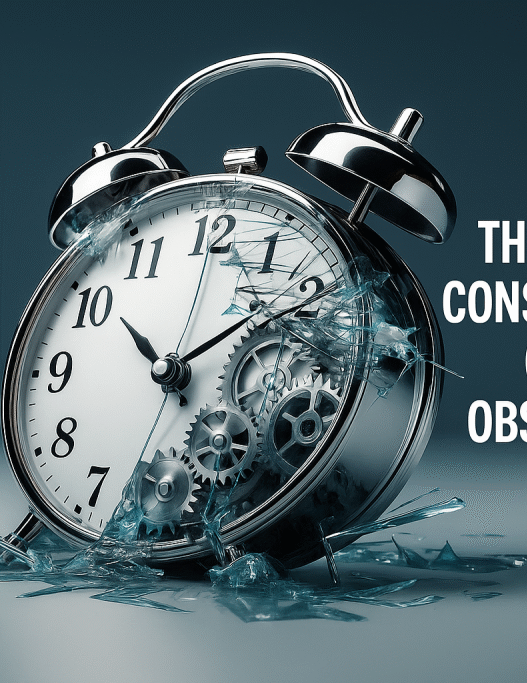Scaling is optional. Profitability isn't.
The Myth of Scale
Startup culture worships growth.
Every headline celebrates funding rounds, headcount milestones, and revenue “10x in 12 months” stories.
Scale has become a badge of honor, even when it's unprofitable.
For solopreneurs and small business owners, that narrative can be toxic.
The pressure to “go big or go home” pushes people into hiring too fast, overcommitting to overhead, and building businesses that look impressive from the outside but miserable on the inside.
Scaling is a choice, not a requirement. And for many entrepreneurs, staying small is not just sustainable. It's smarter.
The Economics of Small
A small business or solo practice has advantages that scale often erodes.
- Lower overhead: Fewer salaries, fewer tools, fewer bills. Every expense you don't add is margin you keep.
- Agility: You can change direction in days. A company with 40 employees has to hold a meeting about holding a meeting.
- High margins: A $200,000 solo business at 60% margin can outperform a $1M agency running on 10%.
Scale often means chasing revenue at the expense of profit.
Small means building profit without sacrificing sanity.
Why Scaling Too Fast Backfires
Adding employees, offices, or massive ad budgets doesn't just add revenue, it adds fragility.
You become responsible for payroll. You need consistent lead flow. You need management layers.
For many solopreneurs, the business you end up with after scaling is not the business you wanted to run.
You started to escape the 9–5. Now you're managing a team of nine and working longer hours than ever.
Scaling for its own sake can turn freedom into a cage.
The Anti-Scaling Playbook
So what does it look like to deliberately stay small—and thrive doing it?
Cap Your Client Base
Decide your upper limit before growth runs you over. Instead of endlessly adding more clients, serve fewer at higher prices. This creates focus, better relationships, and less chaos.
Automate Before You Hire
Most entrepreneurs default to “I need an assistant” long before they really do. In reality, tools often replace people until your time ROI makes hiring undeniable. Zapier, Calendly, and AI-powered scheduling can do the work of a part-time employee for a fraction of the cost.
Profit Share Instead of Payroll
When you do need help, avoid fixed salaries at first. Use partners, collaborators, or profit-sharing arrangements. That way, your costs scale with revenue instead of dragging you down in slow months.
Stay Close to the Work You Love
Scaling often pulls founders away from their craft and into management. Anti-scaling means designing your business so you still spend most of your time doing the work that energizes you.
Case Snapshot: The Consultant Who Capped
A solo consultant I spoke with set a hard rule: no more than five clients at a time. When she hit her cap, she raised her prices. Instead of chasing volume, she doubled her revenue while keeping her schedule sane.
By resisting the temptation to add staff and chase every lead, she preserved both her margins and her lifestyle. Staying small became her growth strategy.
The Psychological Edge of Staying Small
Small businesses have another hidden advantage: clarity.
When you're not drowning in overhead or managing a team, you can actually think. You can say no to bad clients. You can pivot when the market shifts. You can test new ideas without risking collapse.
Scaling often forces founders into constant firefighting. Staying small gives you breathing room. And in business, clear thinking is an underrated asset.
The Anti-Scaling Formula
Instead of chasing “more,” flip the script. Ask three simple questions:
- Revenue: What's enough for my goals and lifestyle?
- Margin: How do I keep this number as high as possible?
- Capacity: How many clients or projects can I realistically serve well?
Once you know those answers, you can design your business around sufficiency instead of endless expansion.
The Biggest Objection: “Won't I Miss Out?”
The fear of staying small is missing opportunities. But saying yes to everything is what makes businesses fragile.
You don't need every client. You need the right ones.
You don't need infinite scale. You need sustainable profitability.
The opportunity you gain from staying small—freedom, flexibility, sanity—often outweighs what you give up.
Action Checklist
- Define your ideal revenue and your ideal margin
- Decide on a client or project cap
- Replace one “human” task with automation this week
- Explore a profit-sharing arrangement before adding payroll
- Audit how much of your time is spent doing the work you love and adjust accordingly
The Bottom Line
Scaling has become a cultural default, but it doesn't have to be yours.
For solopreneurs, staying small can be more profitable, less stressful, and far more sustainable.
The Anti-Scaling Playbook is about building a business that works for you, not for the startup headlines.
You don't have to go big or go home. You can go small and go far.
Growth at all costs is overrated. Profitability and freedom are not.
The post The Anti-Scaling Playbook: Why Staying Small Can Outperform “Growth at All Costs” appeared first on MoneyMiniBlog.








